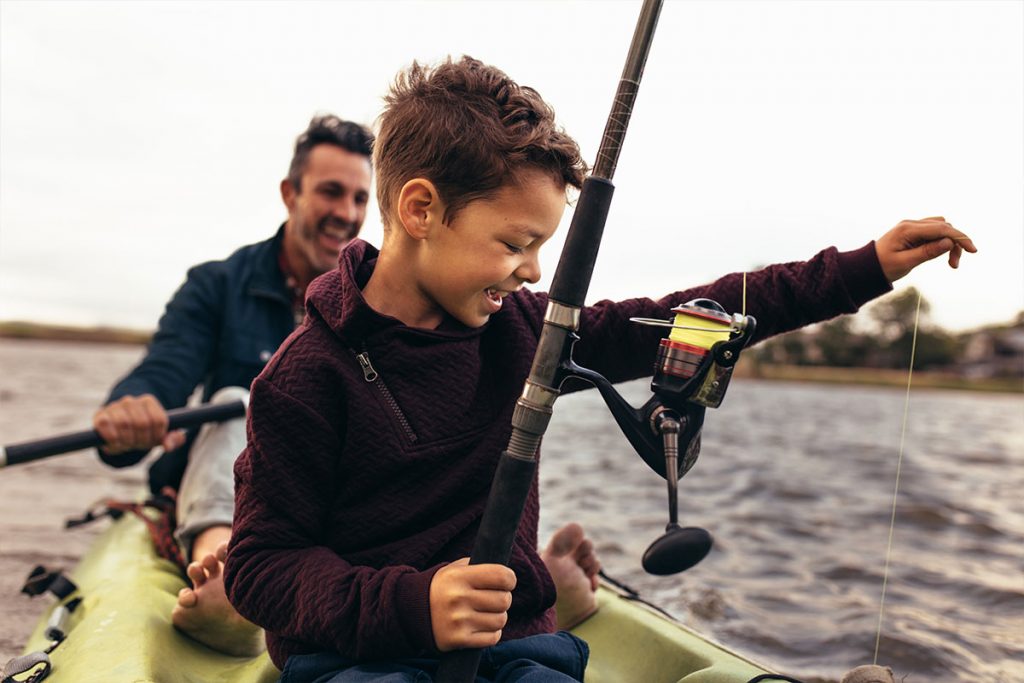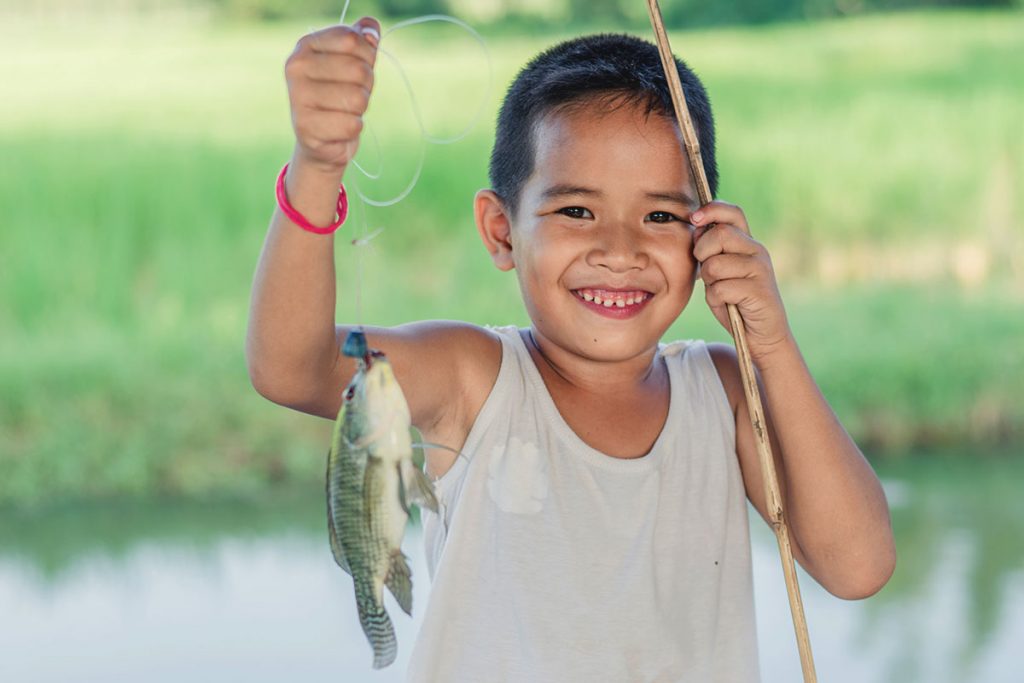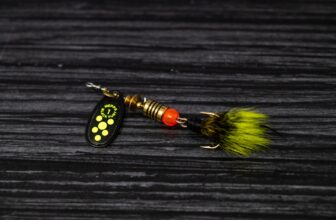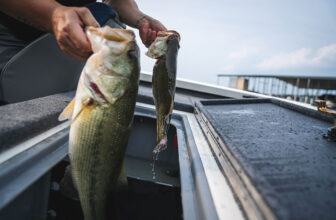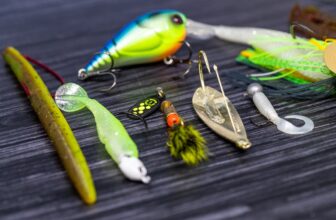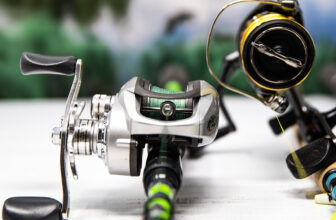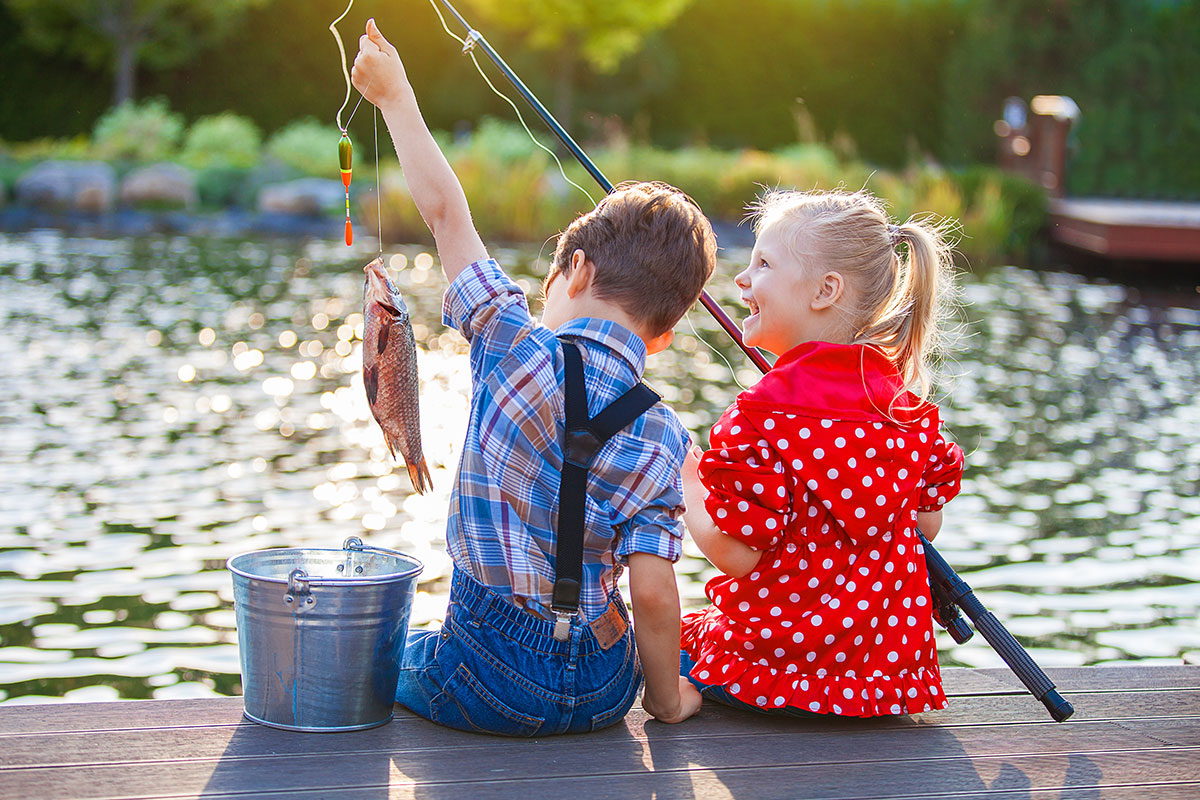
Fishing is a pastime that’s enjoyed by a vast majority of people who learned the basics of how to wet a line from a parent or grandparent. Those who love fishing are often eager to get their young children or grandchildren out on the water to teach them in the same way they were taught.
While most of us have been fortunate enough to have knowledge passed down from our family on how to fish, there are many people out there who likely didn’t grow up with a mentor who could teach them how to fish. If you’re one of those people, this article is for you.
Even if you did have someone teach you how to properly tie a hook and cast your line out, it can still be difficult to present the sport of fishing to your kids in a way that draws their interest. In a world where kids are looking forward to the newest gaming system or stuck on the couch with their gaze fixed on a cellphone screen for hours at a time, it can be hard to compete for their attention with something like fishing.
If you’re wondering what first steps you should take to introduce your kids to fishing, or maybe you’re looking for a surefire way to give them that same sense of adventure and excitement you got from the outdoors when you were a youngster—read on.
This article covers 10 of the best tips we can find when it comes to introducing kids to fishing.
-
No Pressure
Many times, we put a great amount of excitement and anticipation on our own fishing trips. We take time off work, meticulously plan the trip down to the last detail, and set out to take advantage of every bit of daylight we have to catch fish. While this approach is fully acceptable for an adult who is well-accustomed to the sport of fishing, it can be quite overwhelming for a small child.
If you put too much pressure on yourself and your kid for your first trip together, it can quickly backfire. Try to make the focus of your trip—however long it is—more about getting outside and spending time together instead of catching fish. If you put too much emphasis on the success of your trip depending on whether or not you catch anything, you’re setting yourself up for failure since we all know that not every fishing trip ends with a full cooler of keepers.
Try to make the trip as relaxed and carefree as you can. Take your kid with you to the bait shop and let them enjoy the whole process of putting a fishing trip together without placing too much emphasis on catching fish. By doing this, your youngster will likely enjoy the part that truly matters most, which is spending time with you.
-
Fair Weather
The prospect of going fishing for a full day is not always conducive to getting your kids interested in fishing because it’s simply too much for them to take in at once. As any parent already knows, kids have a very short attention span. Forcing them to spend several hours at a time on a boat or on the banks of a lake or river may have the opposite effect of what you intend in drawing their interest in fishing.
If the weather is overly hot and humid, the chances that a kid will enjoy themselves will be slim. While we, as adults, are accustomed to enduring such weather in an effort to catch fish, most kids are simply not ready for this part of fishing.
Try to plan your trip for the last few hours of the evening when there is more shade and the fish will be more likely to bite. By fishing when you’re most likely to get a bite, you can get right down to the fun part with your kid, which is actually catching fish.
-
Keep it Simple
In order for kids to take interest in fishing, your best strategy is to keep everything as simple as possible. This takes out much of the added frustration that comes from getting the line tangled or the child having to learn how to use a complex artificial lure setup. Try to eliminate as many difficulties as you can from the overall process of fishing and make everything as basic as possible.
It’s best to use a spincast rod and reel combo that is made for kids since this will be a smaller size that they can handle more easily. The spincast reel will also cut down on the potential for the line to get tangled when casting in the same way baitcasting and spinning reels are capable of doing.
When it comes to the choice of bait to use, go for something that is very simple as well. You can never go wrong using the classic hook, sinker and bobber setup. Try starting out with crickets or worms since this kind of bait is capable of attracting bites from just about any kind of fish in lakes and rivers.
-
Aim Small
You might assume that you can garner a kid’s attention by showing them photos of some of the bigger fish you’ve caught or thumbing through the latest issue of your favorite fishing magazine and ogling over the many 10+ pound bass or other species of trophy game fish that adorn the pages.
There’s nothing wrong with showing a kid what a trophy fish looks like to help pique their interest, but it’s not a good idea to place very high expectations on catching large fish when you’re fishing with a young kid. As any angler knows, catching a trophy fish only happens in rare circumstances with a good amount of luck and other factors coming together.
Instead, you should go out to the lake with no expectations other than having a great time. Your strategy should be to target smaller fish that are much more likely to bite than those big, mature game fish. Use small hooks and the appropriate-size bait to draw in species like bluegill, which can usually be found in abundance near the shoreline.
-
Make it Comfortable
Whether you’re planning to fish from the shoreline or from a boat, you should plan ahead to make sure your kid is comfortable the whole time. This means bringing along a good chair for them to sit in, as well as picking out a spot in the shade where the sun won’t be beating down on you.
You’ll also soon realize that drinks and snacks can truly make or break a fishing trip with a young kid. Children have much higher metabolisms than adults and they will often need to eat a snack or two in between meals to avoid becoming cranky. While it’s true that many adult anglers often brag about spending an entire day on the water without anything more than a few bottles of water, this is a recipe for disaster when it comes to taking a kid fishing.
Be sure to pack a small cooler with ice and drinks that you know the kid will like. If they’re a picky eater, it’s also a good idea to bring along their favorite snacks. This might seem like an insignificant part of planning your trip, but the last thing you want is for your youngster to have a bad experience in which they are not having fun and they’re hungry without anything to eat.
If this happens, they’ll draw one conclusion: fishing isn’t much fun. If you drop the ball and forget to bring drinks and snacks and your trip ends up going poorly, it’s going to be very difficult to motivate your kid to want to go back out on the water with you again for a while.
-
Emphasize Safety
While you’re out on the water with your kids, it’s crucial that you take some opportunities to teach them some of the most important safety measures that any angler should know about. If they’re fishing from a boat, make sure they are wearing their life jacket at all times. It’s also important to choose a spot on the bank that isn’t near deep water or other potential hazards.
Another item that you’ll want to stress with kids is the importance of practicing caution and safety when casting. Too often, parents get so caught up in trying to catch fish that they don’t properly educate their child on how to cast their line out without risk of hooking themselves or another angler. Kids are not expert anglers and they can very easily make an errant cast and hook you or another child. This happens much more often than you might think.
-
Be Patient
One of the most important parts of teaching your kid how to fish is having an abundance of patience. You’ve probably noticed how well most elementary school teachers and youth sports coaches do in having patience with children. Even if you become frustrated with your child, it’s important that you don’t show it and try to keep the mood as light and enjoyable as you can.
Try to encourage your kid to ask questions if they don’t understand certain parts of what’s going on. You can also help to fill in any gaps in their understanding by asking questions yourself. Try to quiz them on certain things about the different fish or other wildlife in the area. If kids are learning something new when they’re spending time with you in the outdoors, it will feed their sense of curiosity and imagination, making them want to go fishing more often.
Remember, you don’t have to teach your kid everything there is to know about fishing in one trip, so try to be more laid back and enjoy your time together. Even if you’re not catching any fish, if your kid is having fun, that’s what truly matters.
-
Come Prepared
It’s up to you to make sure you have everything you need when taking your kid fishing. This means packing along some bug spray to ward off pesky mosquitos and other insects, as well as other measures. Be sure to have a few ponchos tucked away in case you encounter a bit of rain. It’s also very important that you bring along some sunscreen and apply it to your kid on the exposed areas of skin to avoid them being sunburned.
-
Share Stories
Most of us remember someone in our lives who is a gifted storyteller. Whether it’s sharing their own experiences or that of someone else in relation to fishing or the outdoors, taking the time to share stories is a valuable way to connect with your kid. When you’re out on the water, you can take the opportunity to tell them some of your most fond memories of fishing with your own parents or your friends, but you can also use it as an opportunity to talk to them about virtually anything you want.
Going fishing with your kid means you’ll have a few hours of uninterrupted time to spend together. This means it’s a perfect opportunity for you to talk to them about anything important that you want to share since they’ll likely be less distracted by the outside world and more inclined to listen. Going fishing isn’t always about catching fish, but about connecting with one another and sharing some of the things that matters most to you.
-
Have Fun!
Above all, the most important tip you can get when it comes to taking your kid fishing is to have fun. If you’re not having much luck catching fish, don’t get upset or down about it. Instead try telling your kid some jokes or even doing something different altogether.
Walk around the lake or river and explore the outdoors together. Try to point out some of the various types of wildlife and teach your kids about each creature and what makes them unique. Even if you don’t get a single bite and you end up skipping rocks across the water, your trip will be a success in the long run.
If you keep the focus on having fun, you can be assured that your kid will have a great time and will want to go fishing with you again in the very near future.

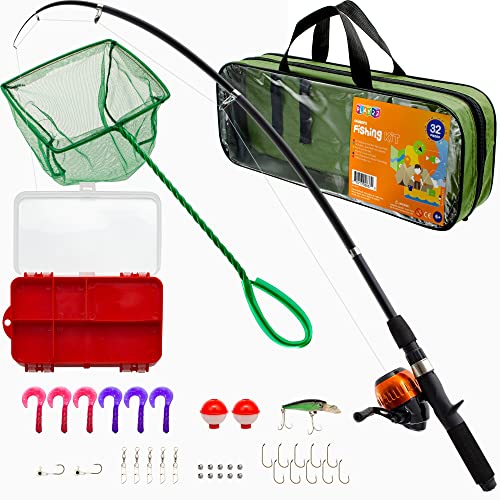
 Amazon.com
Amazon.com 